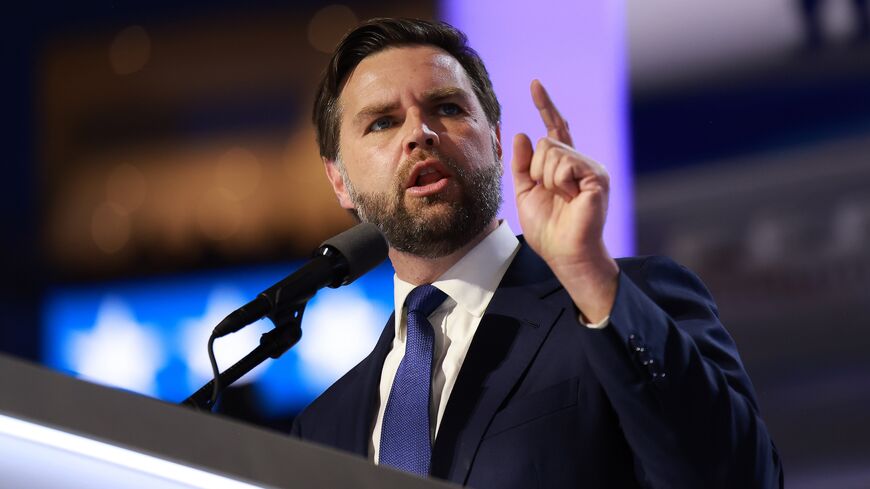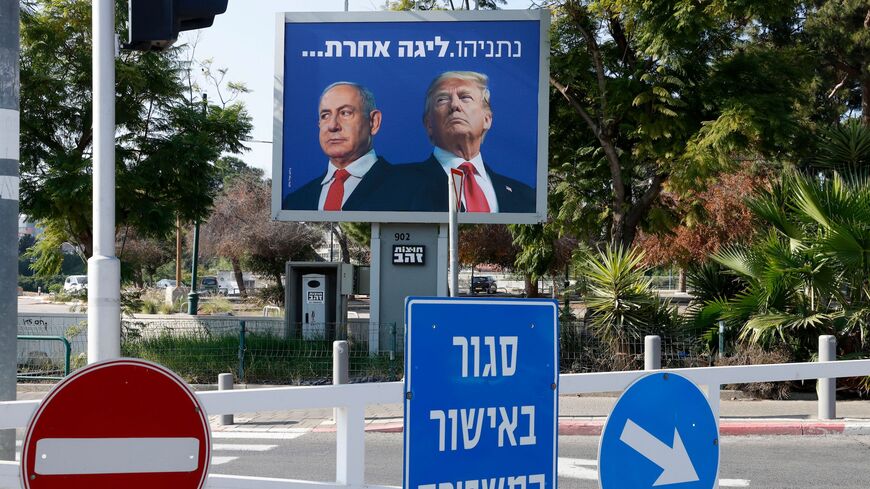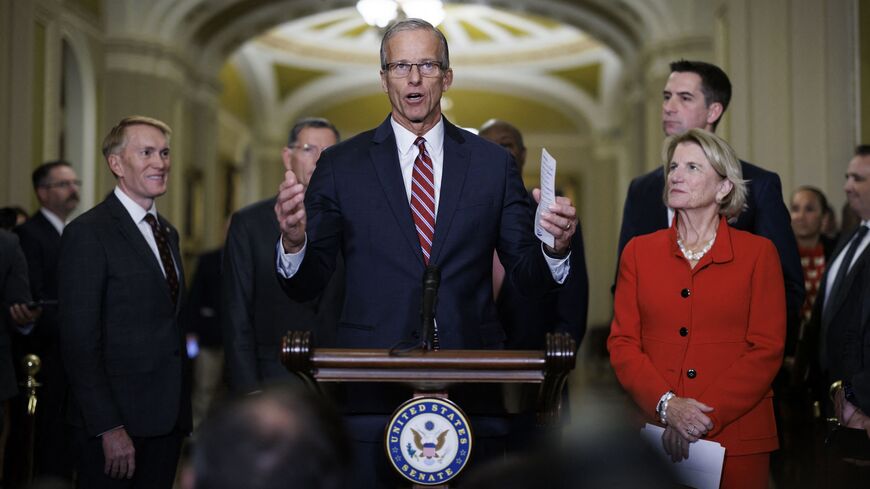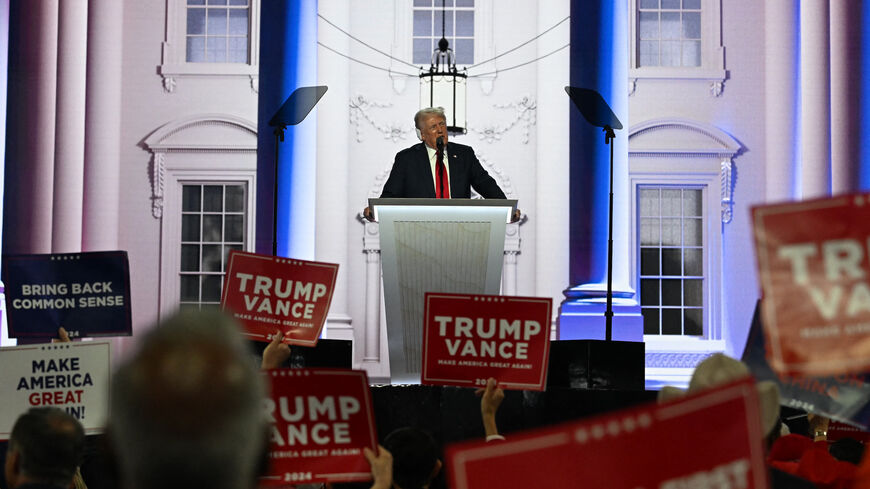Meet J.D. Vance, Trump’s VP pick: Hawk on Israel, critic of foreign aid
Vance is an “America First” firebrand who opposed the 2003 invasion of Iraq and military funding for Ukraine, but is a staunch supporter of Israel and backs normalization agreements with Arab states.

Former US President and Republican nominee Donald Trump announced Monday that he had picked Ohio Senator J.D. Vance to be his vice presidential running mate, choosing a candidate that could galvanize the Republican base and supporters of an “America First” foreign policy as well as pro-Israel voters.
Trump made the announcement in a post on Truth Social during the first day of the Republican National Convention in Milwaukee, just two days after the presumptive Republican nominee survived an assassination attempt at a rally in Pennsylvania.
Vance, 39, successfully ran for Senate in 2022 and assumed office in January of 2023. He serves on committees related to banking, commerce, economics and aging. The senator previously worked as a venture capitalist in the tech industry and as a corporate lawyer. He came to prominence through his 2016 memoir, “Hillbilly Elegy.” The book depicts social and socioeconomic issues in his native Appalachia region. Vance served in the US Marine Corps for four years starting in 2003. His time in the military included working in public affairs in Iraq following the US invasion that year.
'America First'
In contrast with more hawkish voices and the neoconservative wing of the Republican party, Vance has criticized foreign aid and US military operations in the Middle East. In a May address at the Quincy Institute, Vance questioned American military assistance to Ukraine.
“I certainly admire the Ukrainians who are fighting against Russia, but I do not think that it is in America’s interest to continue to fund an effectively never-ending war in Ukraine,” he said in the speech.
Vance critiqued US foreign policy decisions throughout the Quincy Institute speech, saying the US "created a proxy of Iran in the Middle East" via the 2003 invasion of Iraq, among other examples.
After the Senate approved $61 billion in new military aid to Ukraine in late April, Vance rebuked his colleagues, drawing on his experience in Iraq.
“I served my country honorably, and I saw when I went to Iraq that I had been lied to,” said Vance on the Senate floor, adding that “the promises of the foreign policy establishment of this country were a complete joke.”
In the same Senate speech, Vance attributed the exodus of Christians from Iraq to the US invasion.
“In Iraq, before we invaded, there were 1.5 million Christians in Iraq, many of them ancient communities, Chaldeans, people who trace their lineage and their ancestors to people who knew the literal apostles of Jesus Christ,” he said. “Now, nearly every single one of those historical Christian communities is gone. That is the fruit of American labor in Iraq: a regional ally of Iran and the eradication and decimation of one of the oldest Christian communities in the world.”
Iraq’s Chaldean Catholic and other Christian communities numbered around 1.5 million prior to the 2003 war but have since dwindled to roughly 150,000. Iraqi Christians have faced considerable violence since the war, including from the Islamic State in 2014.
Politico described Vance as having an “‘America First’ worldview” in an April article, referencing the slogan repopularized by Trump during his 2016 presidential campaign.
Pro-Israel
Vance’s criticism of US policy does not include questioning US support for Israel. At the Quincy Institute speech, he made the case that Israel differs from Ukraine in terms of US aid.
“It’s sort of weird that this town assumes that Israel and Ukraine are exactly the same. They’re not, of course, and I think it’s important to analyze them in separate buckets,” he said at the institute, adding that politicians need to better articulate how support for Israel is in America's "best interest."
Vance said Israel is “one of the most dynamic and technologically advanced countries in the world." He praised Israel's development of the Iron Beam air defense system, saying, "The Israelis are doing the most important work to give us missile-defense parity."
Vance cited religion as a reason many Americans are pro-Israel, saying the United States is "still the largest Christian-majority country in the world" and referencing the Christian belief that Jesus Christ lived, died and was resurrected in modern day Israel and the West Bank.
"The idea that there is ever going to be an American foreign policy that doesn't care a lot about that slice of the world is preposterous because of who Americans are," he said.
Jewish Insider described Vance as putting a "pro-Israel spin on [an] America First worldview” via the speech.
In an interview with CNN the same month, Vance voiced support for Israel continuing the Gaza war, rejected US pressure on the country and blamed Hamas for Palestinian casualties.
“Hamas started the war, and now they hide behind Palestinian civilians. So if you want to learn the lessons of the last 40 years, the most important thing is we have to defeat Hamas as a viable military organization,” he said. “You’re never going to defeat the ideology of Hamas, but you can root out those commanders, those final military-trained battalions, and I think you should empower the Israelis to do it.”
The Biden administration has grown increasingly critical of Israel’s conduct in the war but has thus far kept up US military support to the country.
According to Vance, the United States has not done well at “micromanaging” wars in the region and should let Israel decide how to conduct the war itself.
“I think that our attitude vis-a-vis the Israelis should be look, we’re not good at micromanaging Middle Eastern wars, the Israelis are our allies, let them prosecute this war the way they see fit,” he said.
Vance called for a “new Middle East” in the CNN interview, referencing US efforts to reach a normalization agreement between Israel and Saudi Arabia.
“Our goal in the Middle East should be to allow the Israelis to get to some good place with the Saudi Arabians and other Gulf Arab states,” he said. “There is no way that we can do that unless the Israelis finish the job with Hamas.”
Conflict with Iran
Following Iran’s attack on Israel in April, Vance cautioned that there is a “real fear of escalation” in the region and that the United States should work to contain the conflict.
“I think the most important thing for the United States here is to one, prevent this from becoming a broader regional conflict, because we’re already stretched very thin, and two, to support our Israeli allies,” he said in another interview with CNN.
Vance said the fear of escalation fear exists because “the world sees a United States that is stretched so thin,” and he called on the United States to “reestablish deterrence,” including by rebuilding manufacturing capacity.








